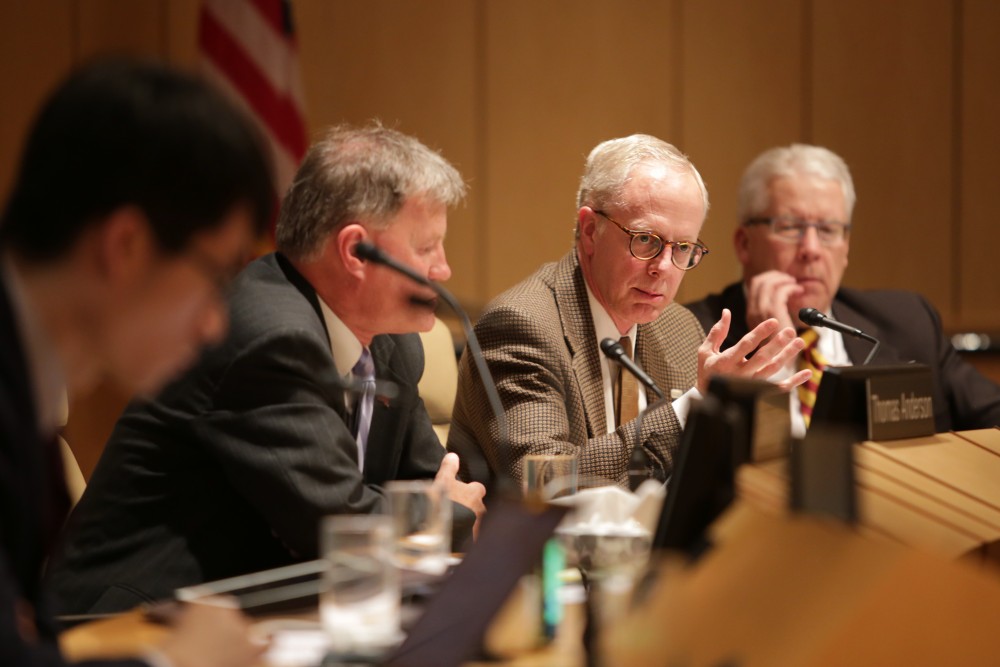Two months into the search for a new University of Minnesota president, costs associated with the independent executive firm hired to lead the search have already surpassed the final costs of previous searches.
The University of Minnesota will pay Storbeck/Pimentel & Associates $224,000 in addition to any other costs — including consultant and candidate travel, advertising and professional printing services — accumulated during the search.
The University paid $139,622 for costs associated with the 2002 presidential search and $214,088 for the 2010 presidential search.
Executive firms, like Storbeck/Pimentel & Associates, act as impartial consultants in high-level administrative searches and are often used by higher education institutions, said Kate Stuckert, the human resources director for the University’s Morrill Hall Shared Services Team.
The firm’s outside-party position conceals a candidate’s confidentiality and reputation as they may be wary of a high-profile position, Stuckert said.
In addition to providing objectivity, search firms also have more extensive networks than University members, said Stuckert. They have a better understanding of markets and more expertise than University committee members, she said.
“To have a search consultant, or a search firm that you can partner with, who can not only keep a distance from the University for confidentiality purposes, but know the people and know the market is something we can’t recreate here as an institution,” Stuckert said.
Search firms are also better positioned to find candidates from diverse backgrounds, said Regent Darrin Rosha.
“It would be very, very difficult [for the board] to conduct a comprehensive and broad search,” he said.
Regents conducting a nationwide search is impractical as they serve on a time-volunteered board and many hold full-time jobs outside of the University, Rosha said.
Evaluating and conducting preliminary conversations with candidates are responsibilities of the search firm, said Regent Richard Beeson.
“Vetting is a primary responsibility of the search firm, but it also falls on the University because ultimately we have to live with the people we hire,” he said.
Beeson added that vetting is both formal and informal as many University community members hear information about candidates by word of mouth.
In addition to working closely with University regents, the firm will also work alongside the Presidential Search Advisory Committee made up of University personnel and chaired by Regent Abdul Omari.
“We as a committee will listen to what we’re hearing and formulate all of the feedback we’re getting and let the search firm know,” Omari said. “And that will drive the candidate pool.”
The committee and search firm will attend listening sessions scheduled throughout this month.
Stuckert said the University began using executive search firms around 10 years ago. Before then, she said the University relied on search committees to find, interview and vet candidates.
Search firms are used when the University is hiring senior positions, like presidents, vice presidents, deans and chancellors, Stuckert said. Occasionally, firms consult on roles that are difficult to fill, though this is left to the discretion of individual departments and colleges, she said.
“It’s become a very big market and the more that we work with them, the better we partner with them, and they know us well and are able to advocate and really recruit for us,” Stuckert said.
Rather than charge the University one-third of the successful candidates total first year’s salary, as Storbeck/Pimentel & Associates typically does, the firm is charging a flat professional fee of $200,000 with a 12 percent “professional fee,” according to the contract signed by the board’s Executive Director and Corporate Secretary Brian Steeves and Alberto Pimentel of Storbeck/Pimentel & Associates.








